Photo Essay: How TV Helps Give Voice to Palestinian Youth
by Birgitte Jallov
[Please note: *Photos for this essay are used with the written permission of Birgitte Jallov and Hania Bitar, director general of PYALARA. PYALARA assumes all responsibility for the granting of such permission to reproduce the images and likenesses of these PYALARA participants.]
Until recently, Palestinian youth have lacked the means to practice one of the key tools of communication for social change—dialogue that leads to identifying problems together, decision making and community solutions. Today, three organisations are working to address these needs.
First, Birzeit University, outside Ramallah, a Palestinian city in the West Bank, offers academic programs leading to bachelor’s degrees in journalism and radio, and the independent Media Institute based at BirZeit offers specialized-short term courses in TV, radio and print journalism.
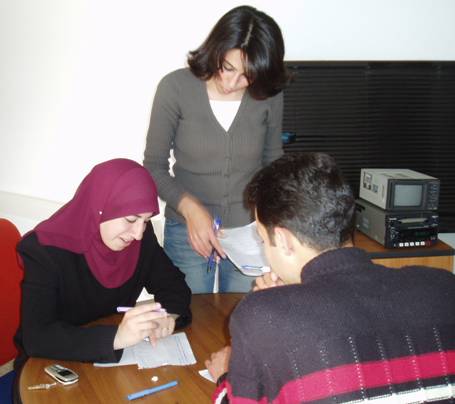
The centre trains professional journalists, encouraging women’s participation in their courses, which traditionally have only male students.
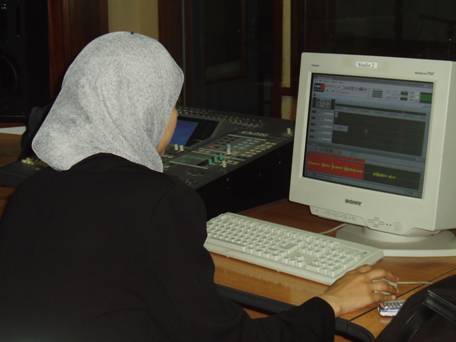
The Institute offers hands-on experience in the studio.
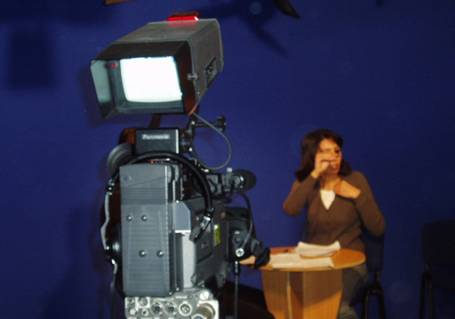
The university’s studios provide students education and practical experience in TV.
Benefiting from the professional training provided by the Media Institute, the Palestinian Youth Association for Leadership and Rights Activation (PYALARA), a nonprofit organization working in partnership with UNICEF, among others, gives Palestinian young people—especially women—the essence of CFSC: the opportunity to define who they are, what they need and how to improve their lives.
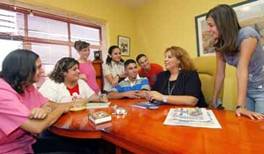
Ms. Hania Bitar, director general of PYALARA, pioneered awareness of women’s issues through television productions that feature challenges facing young Palestinian women, including early marriages, honour killings, cultural traditions that block women’s access to education and careers, etc.
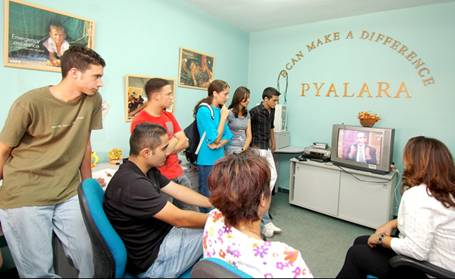
In workshops, young men and women debate such issues and decide how the nature, history and implications of the problems can best be presented in TV programming for other young people. And through this process of planning the presentation of challenges in their own lives to others, they undergo an effective process of consciousness raising—the analysis has immediate impact on their own understanding of themselves in their community and their reality.
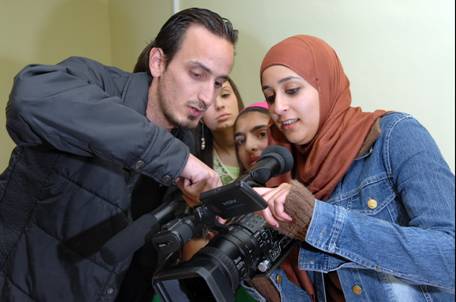
Says Bitar, “The women are often really shy when we start working. But as soon as we share information and experience in a secure workshop setting, the girls unfold and become much more confident and clear about their own priorities.”
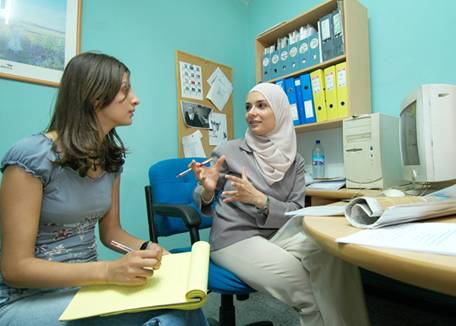
Supported by UNICEF and other organisations, and with the cooperation of Palestine TV, PYALARA produces, a weekly two-hour TV program called Allie Sowtak (“Speak Up”).
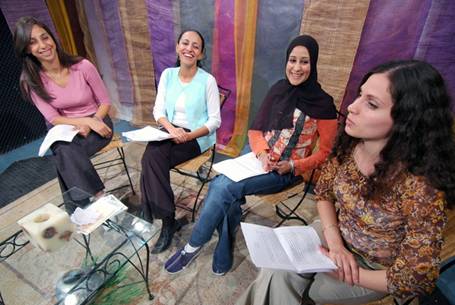
Speak Up programmes are aired principally in the West Bank of Palestine and are moving into Gaza.

More than 300,000 Palestinian children and teenagers watch Speak Up. Such programmes encourage a growing number of young Palestinian women to enter the media—and to make a difference.
PYALARA’s consciousness-raising and the professional training at The Media Institute of Birzeit University, work with those media houses already seeking to provide more women-focused content and more jobs for women.
One such station, Wattan TV, in Ramallah, produces weekly programmes featuring the lives and occupations of women from the villages. These programmes strive to portray women and men as equals.
Through these good examples some station managers begin to realize the importance of providing space for women: giving a space for debate and providing women with a voice. These—still few—station managers want more women in as many positions as possible—for example, as hosts, guests and experts on political talk shows focusing on women’s rights and lives.

Says Nadia Awad, Programme Manager at Wattan TV, “We try to encourage women to take a better role. Looking at myself, a programme manager, I have had the opportunity to be trained, through exposure and experience, and to become very empowered, so I can speak powerfully on the effect of training. It is just so important!”


